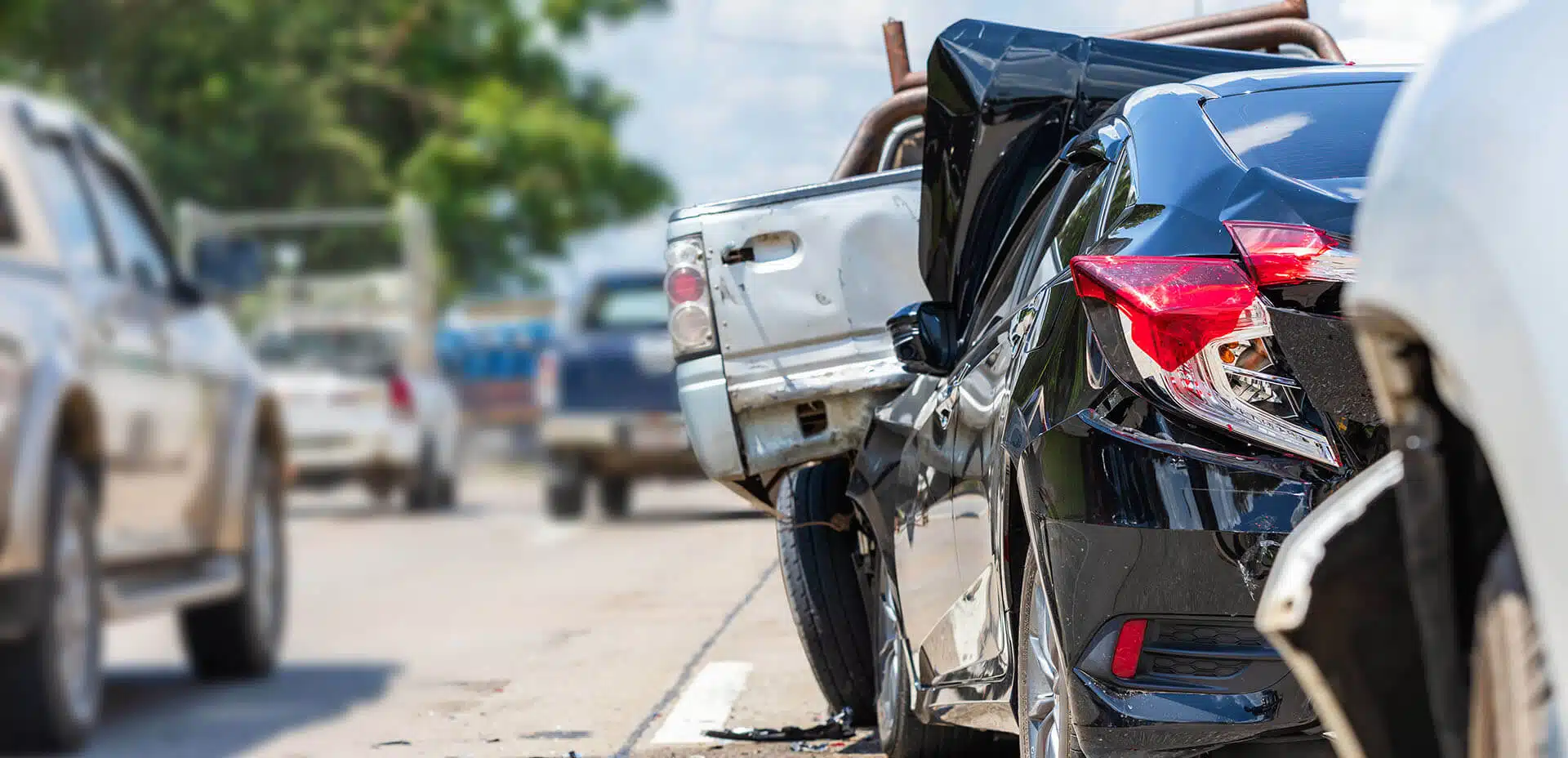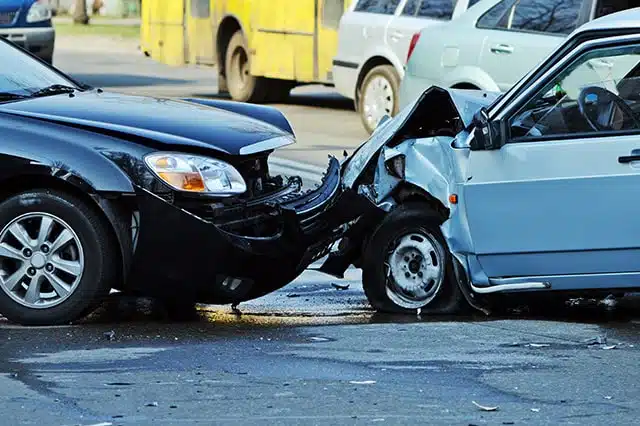
Hanover Car Accident Lawyer







A serious car accident can upend your life in an instant. You may be in pain, unable to work, and overwhelmed by insurance calls — all while trying to recover.
At Sabbeth Law, we understand how stressful this time can be. We focus exclusively on injury victims, and we’re here to help you make sense of what comes next.
If you’ve been injured in a Hanover car accident, we’re ready to stand by your side.
Contact us today to schedule your free consultation.
What to Do After a Car Accident in Hanover
The steps you take right after a crash can protect your health, your rights, and your ability to recover compensation. Here’s what matters most in the hours and days that follow:
1. Call 911 and request medical help
Even if injuries seem minor, always have police and emergency responders assess the situation. Their reports will become part of your case record.
2. Move to a safe place if possible
If your vehicle is drivable, move it out of traffic. Turn on your hazard lights and stay visible.
3. Exchange information with all drivers
Get names, contact details, license plates, and insurance information. If you can, take photos of their IDs to avoid mistakes.
4. Document the accident scene
Use your phone to take photos of:
- Vehicle damage and positions
- Skid marks and debris
- Road signs and traffic controls
- Weather and lighting conditions
5. Seek medical attention right away
Symptoms often appear hours or days later. Delaying care can make your injuries worse and give insurers a reason to dispute your claim. For more on the lasting effects of car crash injuries, see our guide on car accident trauma.
6. Get a copy of the police report
This document will contain key details about the crash and may help establish fault.
7. Avoid speaking to the other driver’s insurance company
Anything you say can be used to minimize your payout. Before giving a recorded statement, it’s smart to talk to a lawyer. Learn more in our article on what to do after a car accident.
Next, let’s take a look at how Vermont law determines who’s responsible for a car accident, and why that matters for your claim.

Who Is at Fault in a Vermont Car Accident?
Vermont follows a fault-based system for car accidents. This means the driver who caused the crash is financially responsible for the damages. If you’ve been injured, you can file a claim against the at-fault driver’s insurance — or pursue a lawsuit if necessary.
Understanding Modified Comparative Fault
In Vermont, you can still recover compensation even if you were partly at fault, as long as you were less than 51 percent responsible. However, your compensation will be reduced by your percentage of fault.
Example: If your damages total $100,000 but you were found to be 20 percent at fault, you could still recover $80,000.
This rule can make a big difference in close-call cases, including multi-vehicle collisions or situations involving unclear liability. If a passenger or another party contributed to the crash, there may be additional considerations. Learn more about shared responsibility in our article on passenger fault in Vermont car accidents.
Why Fault Matters
Fault impacts:
- Whether your claim is valid
- How much you can recover
- What kind of insurance coverage applies
- Whether you need to go to court
Establishing fault early — through documentation, police reports, and expert review — gives you the best chance of recovering full compensation.
Contact UsWhat Compensation Can You Recover After a Hanover Car Accident?
If someone else caused your accident, Vermont law gives you the right to seek compensation for your losses. These can go far beyond just car repairs or hospital bills.
Economic Damages (Tangible Losses)
These are financial losses with clear documentation:
- Emergency room visits, surgery, follow-up care
- Prescription medications and physical therapy
- Lost wages and reduced future earning capacity
- Property damage (including your vehicle)
Non-Economic Damages (Personal Impact)
Some losses don’t come with receipts but are just as real:
- Pain and physical suffering
- Emotional distress and anxiety
- Loss of enjoyment of life
- Scarring or disfigurement
Enhanced Compensatory Damages
In rare cases involving reckless or intentional misconduct, Vermont allows for enhanced compensatory damages. These are similar to punitive damages and are meant to punish especially harmful behavior.
To understand how trauma and long-term effects are factored into these claims, you may find our car accident trauma guide helpful.

How Much Is Your Car Accident Claim Worth?
There’s no fixed amount for a car accident settlement. What your case is worth depends on the specific facts of your injury, your recovery, and how the accident has changed your life.
Key Factors That Influence Value
- Severity of your injuries
- Length of medical treatment and recovery time
- Whether you can return to work
- Long-term or permanent limitations
- Cost of future care or accommodations
- Impact on your daily life and relationships
- Insurance policy limits (yours and theirs)
Be Cautious of Early Settlement Offers
Insurance companies often move quickly to offer a settlement before you know the full extent of your injuries. These offers may seem helpful, but they rarely reflect the true value of your case.
Before signing anything, it’s wise to understand the full scope of your damages — including future medical needs or lost income potential. For more detail on how value is assessed in complex cases, take a look at our Rutland car accident lawyer page.
Contact UsHow Long Do You Have to File a Car Accident Lawsuit in Vermont?
In Vermont, you generally have three years from the date of the accident to file a personal injury lawsuit. This deadline is known as the statute of limitations.
Miss the Deadline, and You May Lose Your Right to Compensation
If you wait too long, the court may dismiss your case — even if your injuries are serious and well-documented.
Wrongful Death Claims Have a Different Timeline
If the accident caused the death of a loved one, a wrongful death lawsuit must be filed within two years under Vermont law.
Don’t Wait to Start Gathering Evidence
Key evidence can fade quickly. Police reports, witness statements, and medical records are all easier to secure early on. Acting promptly gives your case the strongest foundation.

Do You Need a Lawyer for a Hanover Car Accident Claim?
You’re not required to hire a lawyer to file a car accident claim — but having the right one can make a real difference, especially when injuries are involved.
Insurance Companies Are Focused on Paying Less
Adjusters are trained to minimize claims. They may question your injuries, delay payments, or pressure you into a quick settlement. Without legal support, it’s easy to walk away with less than you deserve.
A Lawyer Handles the Hard Parts
Working with Sabbeth Law means you don’t have to manage:
- Gathering evidence and police reports
- Organizing medical records
- Communicating with insurance adjusters
- Meeting legal deadlines or filing a lawsuit if necessary
A Trusted Legal Team on Your Side
We’ve been recognized by U.S. News Best Lawyers, Super Lawyers of New England, and hold a Martindale AV rating for our work in personal injury law. Our team knows how to stand up to insurance companies and build strong cases for the people we represent.
To learn more about how we help clients across Vermont, visit our Burlington car accident lawyer page.
Contact UsContact Sabbeth Law: Your Hanover Car Accident Lawyer
After a serious car accident, getting legal help shouldn’t be complicated. At Sabbeth Law, we are built to handle high-stakes cases — including those involving commercial vehicles and complex injuries.
We’re members of the Association of Truck Accident Attorneys, the AAJ Trucking Litigation Group, and the National Trial Lawyers Top Truck Accident Lawyers. Our results include seven- and eight-figure recoveries, and we work with a national network of experts to build the strongest case possible.
We offer free consultations, and you pay nothing unless we recover compensation for you. If you can’t come to us, we’ll come to you.
Contact us today to speak with a Hanover car accident lawyer about your case.
Frequently Asked Questions About Hanover Car Accident Claims
How do I know if I have a valid car accident claim?
If you were injured and someone else’s carelessness contributed to the crash, you may have a claim. Vermont’s fault-based system allows injured drivers, passengers, or even pedestrians to seek compensation from the at-fault party.
Can I still recover compensation if I was partially at fault?
Yes. Under Vermont’s modified comparative fault rule, you can still recover damages if you were less than 51 percent responsible for the accident. Your compensation is reduced by your percentage of fault.
How long do I have to file a lawsuit after a car accident in Vermont?
In most cases, you have three years from the date of the accident to file a personal injury lawsuit. For wrongful death claims, the limit is typically two years. It’s best to act early while evidence is still fresh.
What if I didn’t feel injured right away?
It’s common for symptoms to appear hours or even days after a crash. You should always get medical attention promptly and document any changes. Delayed treatment can hurt both your health and your legal case.
What can I be compensated for after a car crash?
You may be eligible for:
- Medical expenses (past and future)
- Lost wages or reduced earning capacity
- Pain and suffering
- Emotional distress
- Property damage
In rare cases, enhanced compensatory damages may also apply.
Should I talk to the insurance company before hiring a lawyer?
It’s better to speak with a lawyer first. Insurance adjusters may seem helpful but are trained to protect the company’s bottom line. Giving a recorded statement too early can affect your claim.
How much does it cost to hire Sabbeth Law?
We offer free consultations, and you only pay if we recover compensation for you. There are no upfront costs.
Practice Areas
Client Testimonials
LUKE PARMENTER“Immediately after my son’s injury at work, he was treated poorly. Over the course of the next few days it became even worse, so I called Mike and he and Crystal have been absolute lifesavers during the process. Mike is not your typical stuffed suit lawyer who only cares about the bottom line he genuinely cares about his clients and his assistant Crystal is beyond amazing! My thanks to you both!”
Client Testimonials
“Immediately after my son’s injury at work, he was treated poorly. Over the course of the next few days it became even worse, so I called Mike and he and Crystal have been absolute lifesavers during the process. Mike is not your typical stuffed suit lawyer who only cares about the bottom line he genuinely cares about his clients and his assistant Crystal is beyond amazing! My thanks to you both!”
LUKE PARMENTER
“I could never ask for a better attorney, to fight for me, to believe in me, and have faith in me, than what I found in Mike Sabbeth, He doesn’t treat you like a client, he treats you as if you are one of his own family members, He will fight for you, with all he has, and is ALWAYS up front and honest with you about everything!”
SANDRA DRUGE
